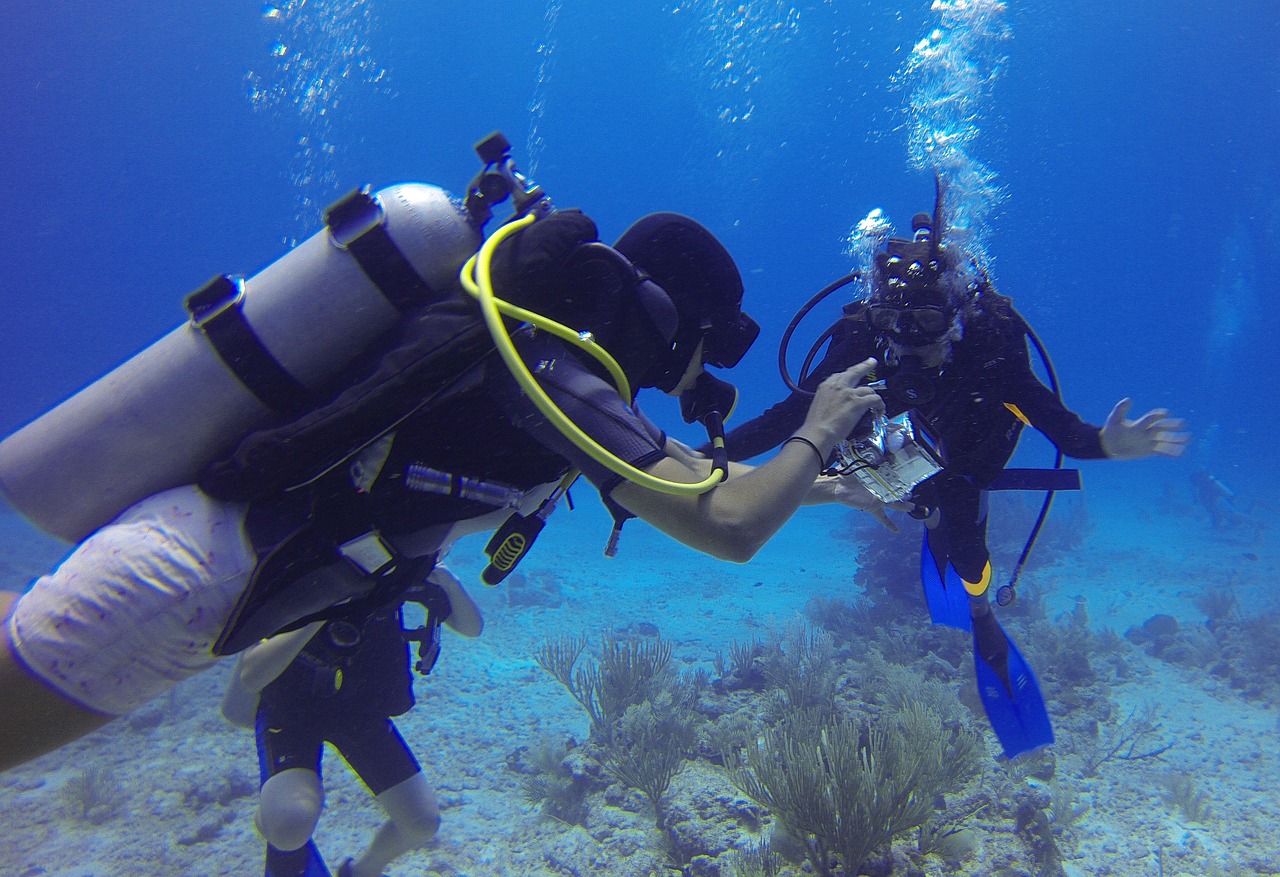The Importance of a Diving Buddy
Safety in numbers
There’s no guarantee that everything will go as planned during a dive. When faced with unexpected circumstances such as challenges from nature or equipment malfunctions, it’s reassuring to have someone by your side underwater. That’s why we dive in buddy teams. Having a reliable buddy is invaluable and can make all the difference in extreme situations, potentially even between life and death. Your buddy is your safety net.
Support
Even if you’re qualified in scuba diving, it’s common sense for a more experienced diver to “look after” a less experienced one. There’s no shame in not having enough experience. I’ve encountered many situations where I wasn’t sure about the equipment or had worries about how the dive would unfold. This is perfectly normal, as we all have fears of the unknown. That’s when a good buddy makes all the difference. Their advice, support, explanations, or just the assurance that they’re there with you can dispel any doubts and turn a stressful dive into a great experience.
Qualities to Look for in a Diving Buddy
Trustworthiness
The foundation of a good relationship with your dive buddy is trust. Diving is typically a relaxing activity, but it can present challenges. You need someone you can depend on when those situations arise. Having a person you trust to help resolve such situations brings peace of mind and enhances relaxation. After all, a relaxed diver is the one who enjoys the dive the most.
Compatibility
Your buddy should also be someone who shares your diving interests. You want to have a kind of synchronicity with your buddy, aiming for the same or similar goals. Ideally, you are looking for a buddy whose skill level, diving style, and goals align with your own.
Personal Traits
A calm person is the one to go for. Stress can lead to wrong decisions, which can create problems.
Communication Skills
Good and clear communication between divers is essential. Since most divers still dive without means of direct verbal communication, we rely on good old hand signals. Make sure these signals are clear and well understood between you and your buddy to avoid any confusion during the dive. You learn how to use hand signals during your basic scuba diving training (for example, PADI Open Water Diver or SSI Open Water Diver course).

Image credit: Jacqueline Macou
Finding Your Perfect Diving Buddy
If you don’t have a personal friend who can be your diving buddy, there are other ways to find one.
The quest for the ideal diving buddy begins by tapping into the vibrant community of fellow divers. Local dive clubs, online forums, and social media groups are invaluable resources for connecting with like-minded individuals who share your passion for exploring the underwater realm. These platforms facilitate networking, allowing you to find potential buddies whose interests and aspirations align with your own.
Dive shops and resorts also serve as hubs for divers seeking companionship beneath the waves. Strike up conversations with staff and fellow patrons, and don’t hesitate to inquire about opportunities to join group dives or meet other divers. These establishments often host events, workshops, and training sessions that provide ample opportunities to forge new diving buddy relationships.
If you’re new to diving or seeking to expand your skills, consider enrolling in dive certification courses. These courses not only enhance your diving proficiency but also introduce you to a community of divers committed to safety and skill development. Whether you’re embarking on an advanced open water course or pursuing specialized training like rescue diver certification, you’re bound to encounter potential diving buddies who share your dedication to diving excellence.
Building and Nurturing the Buddy Relationship
Strive to establish a fair and mutual relationship where openness is encouraged. There shouldn’t be anything holding you back from discussing anything with your diving buddy (dive-related, of course). After each dive, take the opportunity to debrief and reflect on your experiences together. Celebrate successes, identify areas for improvement, and openly discuss any challenges or concerns that arose during the dive. Honest communication is essential for fostering a culture of continuous learning and growth within your diving buddy relationship.
Encourage open dialogue
Have a chat to align on dive plans, emergency procedures, and communication signals.
Practice together
Practice makes perfect they say. Emphasize the importance of pre-dive briefings, practicing emergency drills, and honing skills together to build trust and familiarity.
Reflect and improve
Advocate for regular debriefings after dives to discuss successes, challenges, and areas for improvement as a team.
Conclusion
The diving buddy relationship is a cornerstone of safe, enjoyable, and fulfilling diving experiences. By prioritizing trust, compatibility, and communication, and actively seeking out compatible partners, you’ll forge bonds that enhance your underwater adventures and ensure that every dive is an unforgettable journey into the depths.

